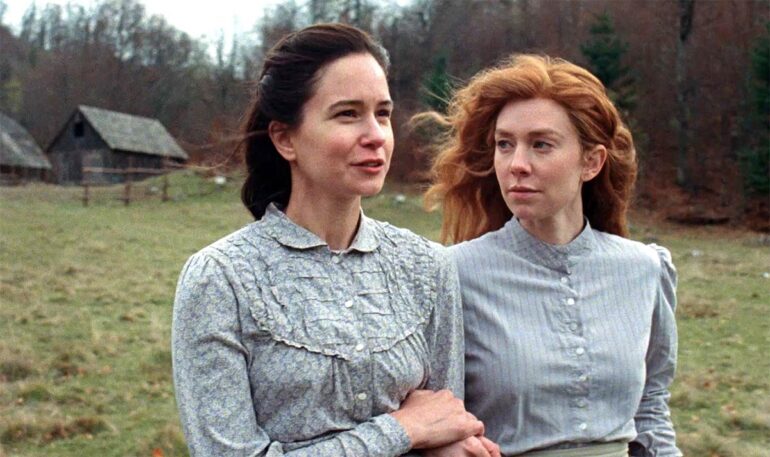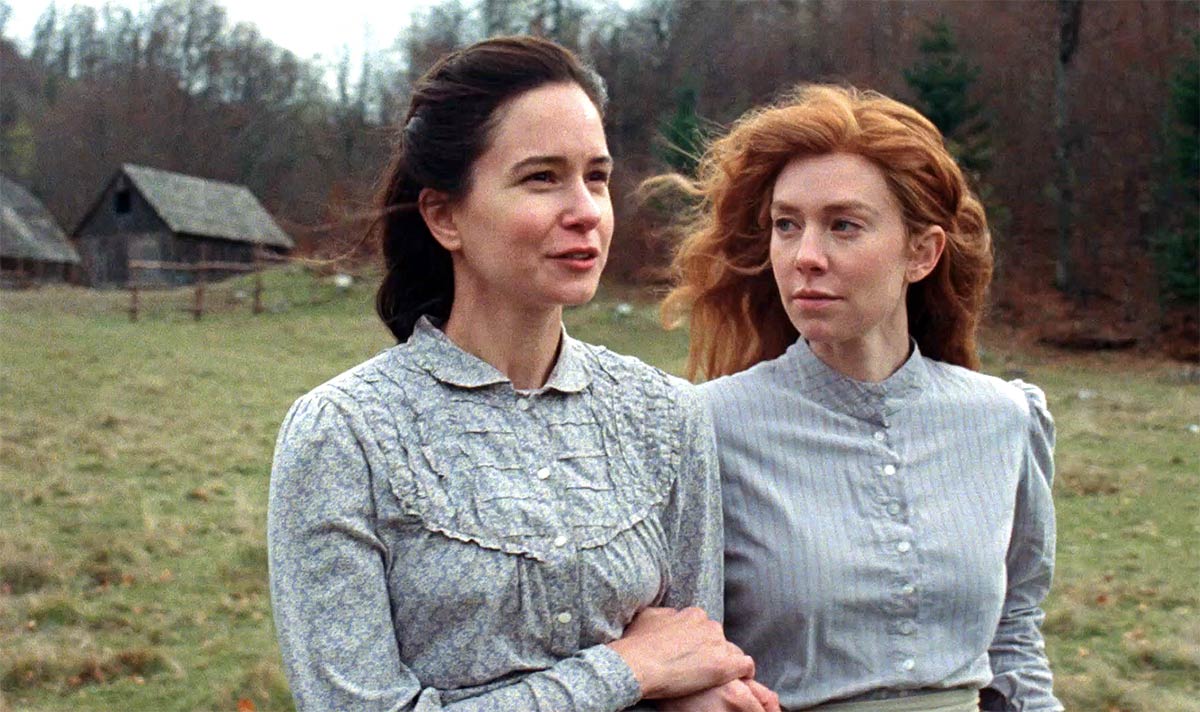The World To Come is moving poetry — a slow, sizzling burn of sapphic romance that burrows its way into your heart, and seizes your soul.
The film is set in 1850s New York, where each day means back-breaking work, and husbands and wives are joined together in a vague sense of duty and obligation. A woman’s place is confined to the domestic, to care for the house and her husband, and provide him offspring in time. Abigail (Katherine Waterson) is the embodiment of all that, an impeccable homemaker and mother to Nellie, but her mind yearns for more. She desires a connection that would be worthy of her eloquent thoughts, and husband Dyer (Casey Affleck) simply doesn’t inspire that.
After the passing of her daughter, Abigail feels an increased sense of dislocation. A child helped both Abigail and Dyer keep a thread between them, but now that Nellie’s gone, all that’s left is a frayed piece of string. Abigail moves through the required motions of the day with practised efficiency, her veins devoid of sentiment and passion. This all changes when she lays her eyes on Vanessa Kirby’s Tallie, and despite the briefness of the moment, the two actresses do a remarkable job of showing that spark and interest. So, it’s no surprise that Tallie invites herself over to Abigail’s house, and the pair find themselves spinning in each other’s orbits, unable to break away.
There have been a quite a few period sapphic romances of late – Portrait of a Lady on Fire and Ammonite come to mind – and while The World to Come isn’t quite on the level of the former (it certainly beats out the latter), director Mona Fastvold builds quite the hypnotic film, using the conceit of cartography to showcase each women’s traversing of the other.
This is apparent from the moment Abigail requests an atlas as a gift, with a desire to broaden her mind because her body is rooted in a life she cannot move from. It is Tallie who accedes to her request, and from then on, they embark on a journey there is no turning back from. They explore the nooks and crannies of each other’s minds, souls, bodies, twining themselves around one another, till they cannot bring themselves to let go.
Soon, their husbands start to feel the distance this relationship has brought into their respective homes. Before the women had each other, their husbands and homes were their priority. Now, they find themselves breathless and distracted, their husbands sidelined to peripheries, leading the men to suspect that there is more than friendship between the pair. Christopher Abbott’s Finney rains an Old Testament rage on Tallie, attempting to exert control over her body because he knows he has no part of her soul, while Affleck’s Dyer desperately tries to reinsert himself in his wife’s life.
Their performances are so contrasting, from explicit fury to bleak despair, though I must say Affleck’s portrayal is more affecting. His performance sneaks up on you, and you don’t realise how much you feel for him until you see him look at his wife with quiet resignation while on a roof, where his attempts to bridge just fall into an uncoverable distance.
While we are privy to Abigail’s thoughts throughout the film, since she journals and narrates, we don’t realise how much she has held back from us until the end, and even then those memories are still closely etched to herself. We are given brief snippets, but the true extent of what she shared with Tallie will be hers and hers alone.
The World to Come moves us from the shivering cold of death, to the warm glow of a passionate and like-minded love, before dousing us with an agony that is inevitable in the trajectory of such romances. Though the map is incomplete, there is still the world to come, and while Abigail waits, her memories and words will be the keeper of their love story, one that she can traverse over and over again.
READ NEXT: 10 Upcoming New Netflix Movies To Watch in 2021
Some of the coverage you find on Cultured Vultures contains affiliate links, which provide us with small commissions based on purchases made from visiting our site. We cover gaming news, movie reviews, wrestling and much more.




